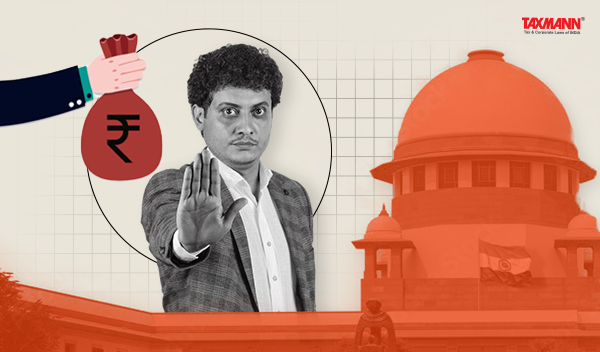HC Denies Preferential Payment to Commercial Unit Buyers for Failure to Claim Deposit in Winding-Up Proceedings
- Blog|News|Company Law|
- 2 Min Read
- By Taxmann
- |
- Last Updated on 10 December, 2024

Case Details: Mrs. Usha Jain vs. Vigneshwara Developwell (P.) Ltd. - [2024] 169 taxmann.com 101 (Delhi)
Judiciary and Counsel Details
- Vibhu Bakhru & Ms. Swarana Kanta Sharma, JJ.
-
Piyush Sanghi, Ms Khushbu Sahu, Nikhil Singh, Ms Priyadarshi Gopal, Ms Anushka Ojha & Ms Raahithya Raj Mishra, Advs. for the Appellant.
-
Ms Ruchi Sindhwani, Sr. Standing Counsel & Ms Megha Bharara, Adv. for the Respondent.
Facts of the Case
In the instant case, the appellant applied for allotment of a commercial unit in a project developed by the respondent company and the appellant deposited an amount as consideration for purchase.
The Agreement between the appellants and the respondent included a buy-back clause, whereby appellants were entitled to insist that their investment be returned. Appellants exercised said option but respondent failed to pay said amount.
The Appellants preferred a petition for winding up the respondent. The Respondent deposited said amount payable to appellants. Other creditors of respondent also filed petitions for winding up company and Company Court admitted said petition for winding up and appointed an Official Liquidator.
Further, the appellant filed an application for release of amounts deposited by respondent and the Company Court passed an order rejecting said application. On appeal, the appellant submitted that since their petition was prior in point of time and an amount was deposited during course of said petition, they would have a right to recover amount deposited in precedence to other creditors.
High Court Held
The High Court observed that since appellants did not take any steps for seeking release of amount deposited by Company with Registry of instant Court, appellants were not entitled to any preferential payment, once the Company Court had decided to proceed with winding up of company.
Also, the appellants had to stand with other similarly placed creditors for recovering their dividends in accordance with section 529 of Companies Act, 1956.
The High Court held that the claims of the appellants were admitted by company, Official Liquidator was to be directed to proceed by admitting said claim and disbursement, if any, in regard to said claim would be made in accordance with sections 529,529A & 530 of the Companies Act, 1956. Therefore, instant appeal was to be disposed of in aforesaid directions.
Disclaimer: The content/information published on the website is only for general information of the user and shall not be construed as legal advice. While the Taxmann has exercised reasonable efforts to ensure the veracity of information/content published, Taxmann shall be under no liability in any manner whatsoever for incorrect information, if any.

Taxmann Publications has a dedicated in-house Research & Editorial Team. This team consists of a team of Chartered Accountants, Company Secretaries, and Lawyers. This team works under the guidance and supervision of editor-in-chief Mr Rakesh Bhargava.
The Research and Editorial Team is responsible for developing reliable and accurate content for the readers. The team follows the six-sigma approach to achieve the benchmark of zero error in its publications and research platforms. The team ensures that the following publication guidelines are thoroughly followed while developing the content:
- The statutory material is obtained only from the authorized and reliable sources
- All the latest developments in the judicial and legislative fields are covered
- Prepare the analytical write-ups on current, controversial, and important issues to help the readers to understand the concept and its implications
- Every content published by Taxmann is complete, accurate and lucid
- All evidence-based statements are supported with proper reference to Section, Circular No., Notification No. or citations
- The golden rules of grammar, style and consistency are thoroughly followed
- Font and size that’s easy to read and remain consistent across all imprint and digital publications are applied



 CA | CS | CMA
CA | CS | CMA
